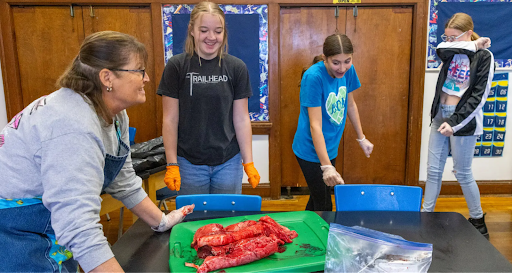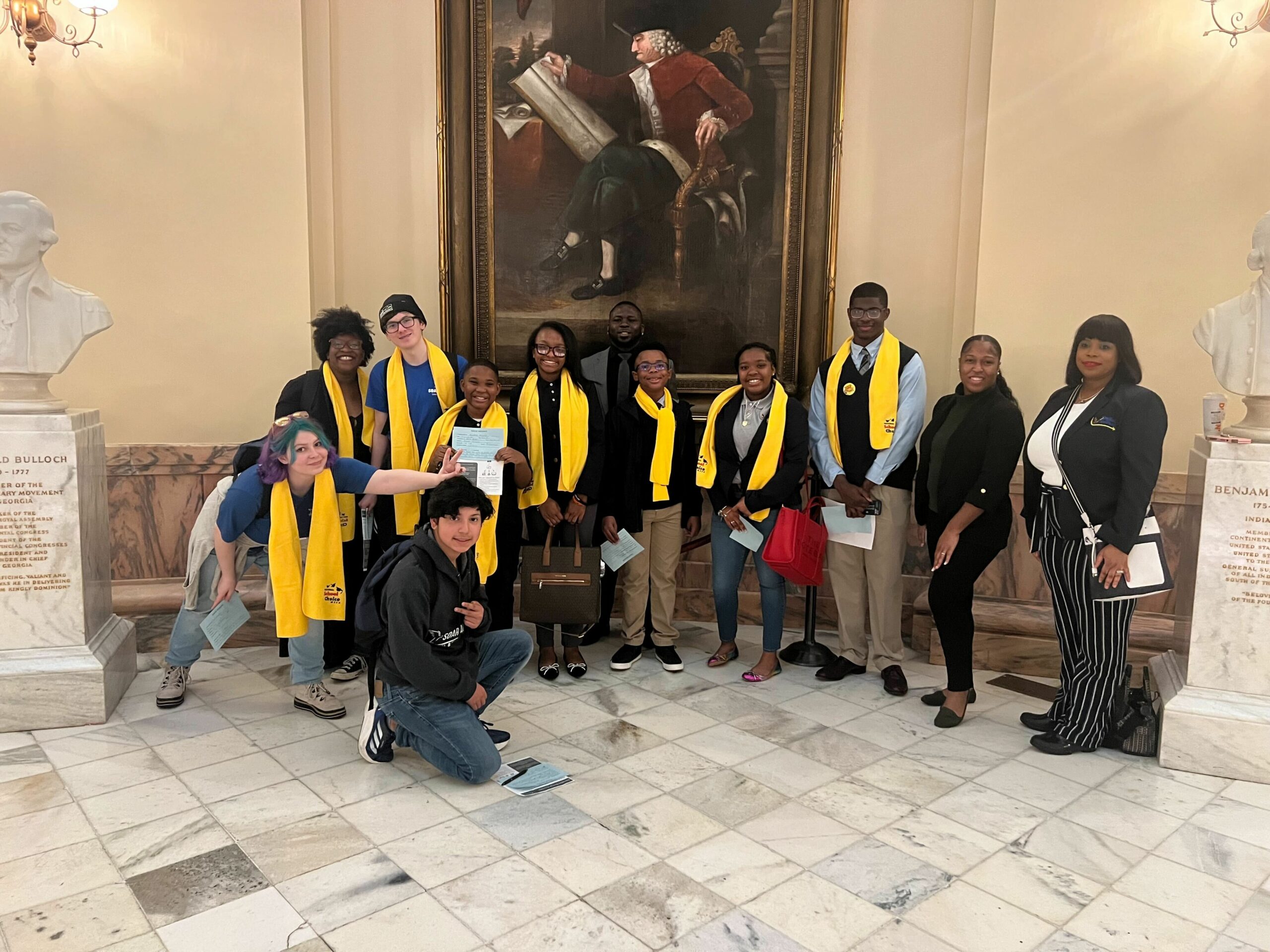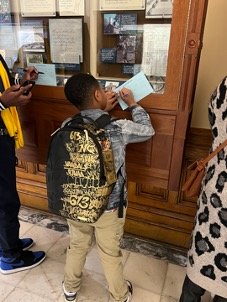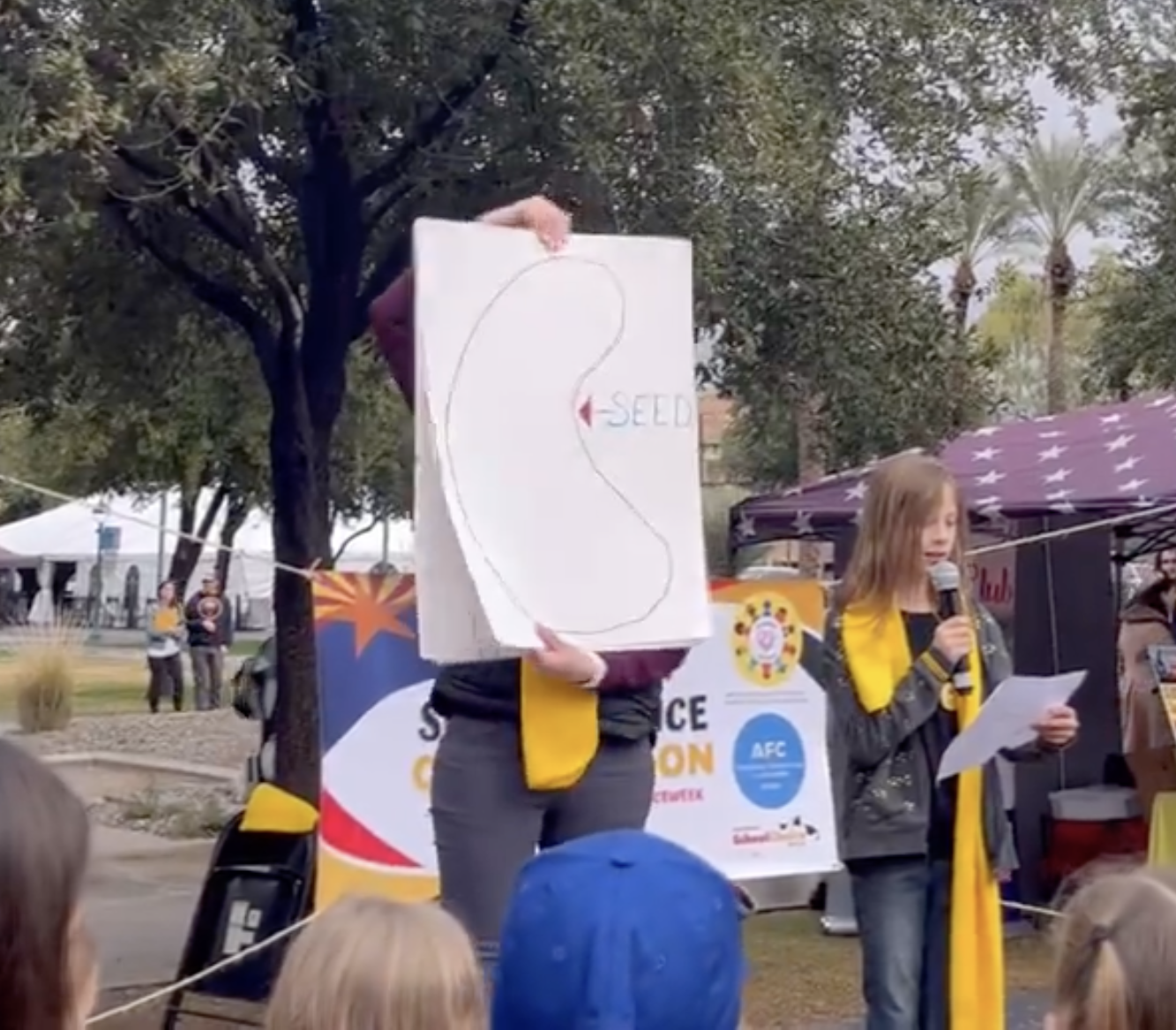Jump to: Top Tasks | From the Field | Key Resources | Moments of Resilience
It’s week 198 of our new reality and we are thinking about the huge challenge on the horizon of rightsizing school districts in the face of declining enrollment while growing opportunities for all kids.
“Fresh from the academic struggles that followed the pandemic, and with federal relief funds soon to run out,” many of the nation’s largest school districts “now confront a massive enrollment crisis,” Linda Jacobson reports in The 74.
When a school loses more than 20% of its students, it becomes much harder to run sustainably. Since the 2019-20 school year, that has happened to 25% of Philadelphia schools, 24% of Albuquerque schools, 21% of Los Angeles schools, 21% of Seattle schools and 19% of New York City schools. “Many districts with declining enrollment have been able to delay closures by relying on federal relief funds to offset the loss in state funding,” writes Jacobson. But later this year those federal funds will come to an end.
We know how damaging downsizing can be for children but the longer school districts wait, the worse off kids will be. It is crucial that districts move quickly so that the money that does remain isn’t used to prop up half-filled buildings instead of providing all children with the robust education they deserve.
Last time in The New Reality Roundup, we reflected on the ways our education system improved in 2023. This week, we are proud to launch our 2024 advocacy campaigns with 50 goals across 10 states. And stay tuned for further exciting announcements coming from 50CAN this month!
SUBSCRIBE
TOP TASKS
50 Goals for 2024
Last year, the advocates of the 50CAN network achieved 30 policy victories aligned to Believe in Better, our vision for the future of American education. In 2024, we’re building on this momentum with 50 policy goals for 2024.
The Education that’s Right for You
The future of education puts the decision-making power of where, how and when students will be educated directly in the hands of parents. That means district, charter, private, microschools, learning pods, virtual education, homeschooling and more. These options must be available to all, regardless of where they live, the district boundaries or attendance zones that have been drawn or the wealth of their family.
In 2024, we’ll build toward this vision by:
In Colorado, improving transportation access for families seeking more educational choices and by creating a civil right to a quality education.
In Connecticut, streamlining the charter approval and funding processes.
In Delaware, enacting a student-based funding model, giving charter schools the flexibility to hire the school leaders that work best for their school and passing a constitutional amendment saying “every child has the right to a high quality public education.”
In Georgia, expanding educational opportunities so more families can attend a school of their choice, supporting charter schools by improving the regulatory environment and increasing grant funding for charter facilities.
In Hawaii, expanding access to quality facilities for charter schools.
In Louisiana, enacting ESA legislation and establishing a revolving loan fund for charter schools.
In New Jersey, fixing inequity in charter school access to facilities funding.
In New Mexico, ensuring high quality charter schools are approved to open and grow.
In North Carolina, ensuring charter schools have access to county bonds for facilities.
In Tennessee, expanding education savings accounts and securing additional investment in facilities funding for charter schools.
Tutoring and Care for All
There is significant research showing the positive effects that one-on-one and small group tutoring have on remediating and accelerating learning, particularly when grounded in research-based instruction like the “Science of Reading.” It’s time to make tutoring a core and permanent element of our education system. In addition, every child should also have access to a range of free summer learning opportunities and camps, and the opportunity to connect regularly with a caring adult for mental health and wellness services. Finally, students deserve caring adults who can meet their needs, so we’re pursuing teacher certification and licensure reforms.
In 2024, we’ll build toward this vision by:
In Connecticut, modernizing the educator certification system.
In Georgia, providing state funding to implement early literacy policies.
In Hawaii, ensuring transparency around teacher use of curricular materials grounded in the science of reading and requiring all public elementary schools to conduct universal screening for students grades K-3 to identify those at risk of having dyslexia.
In Louisiana, expanding funding for high dosage tutoring statewide.
In New Jersey, aligning New Jersey’s literacy approach to the Science of Reading and advancing the teacher apprenticeship model.
In New Mexico, securing funding for the Reading Materials Fund, improving literacy scores with a strengthened early literacy pilot and enacting a pilot for automatic enrollment in advanced coursework.
In North Carolina, removing unnecessary teacher license credential barriers that prevent more minorities from entering the profession.
In Tennessee, increasing equitable access to high-quality tutoring services for all students.
A World of Open and Connected Learning
The future of education must move beyond the limits of the school building and tap into national and local partnerships with communities, businesses and civic institutions to deliver an interconnected and borderless education where learning happens everywhere.
In 2024, we’ll build toward this vision by:
In Colorado, expanding direct aid to families for outside the classroom learning and extracurricular opportunities.
In Delaware, establishing a Digital Divide Taskforce.
In New Jersey, advancing the affordability and access to CLEP testing with asynchronous learning supports.
In Tennessee, establishing innovative learning models to promote learning outside of the classroom.
A Family’s Right to Know What’s Working
Greater decentralization of learning must go hand-in-hand with better information for parents so they can make the right choices for their children. That means real-time updates on their children’s progress, clear measures of the quality and effectiveness of programs and dollar-by-dollar reports on the amount of money the government is spending on their child and how that money is being spent.
In 2024, we’ll build toward this vision by:
In Colorado, improving data privacy laws so that more districts are reporting student achievement data.
In Connecticut, building systems to inform parents of school quality and fully implementing the Multilingual Learner Bill of Rights.
In Delaware, requiring the state to transparently host proficiency data on their website and requiring single digit proficiency schools to write an improvement plan.
In Georgia, ensuring the state maintains a high quality system of assessments and evaluations.
In North Carolina, enacting meaningful accountability for ESAs that does not hamper innovation.
In Tennessee, ensuring parental access to accountability framework data.
A Clear Path to a Career
The future of education will ensure that every child graduates from high school with a clear path to college or a career by partnering with the business and higher education communities to create new internships, apprenticeships and early-access college courses so that there are multiple paths to success.
In 2024, we’ll build toward this vision by:
In Connecticut, clarifying school funding allocations for agricultural and vocational schools.
In Delaware, requiring financial literacy classes for all students.
In Georgia, strengthening career pathway opportunities.
In Hawaii, increasing incentives to employers who offer quality work-based learning opportunities, ensuring that all high schools are equipped to provide 12 month counselors with a clearly defined role to support postsecondary access and success and ensure FAFSA completion is a core element of the Personal Transition Plan that is required by the Hawaii Department of Education.
In Louisiana, expanding workforce pathways opportunities.
In New Mexico, ensuring CTE courses are aligned to meaningful college and career pathways.
In Tennessee, strengthening career pathways opportunities with data-driven solutions.
THE TASK OF THE WEEK IS
AdvocacyLabs: How to Change the World
Since 2019, 50CAN and FutureEd at Georgetown University have partnered together on AdvocacyLabs, where we explore what science can tell us about what makes for effective advocacy. Through this collaboration, we’ve issued seven reports that have helped advocates understand core lessons like the advantages of a vocal opposition, the different approaches to community organizing and a case study analysis of over 250 education advocacy campaigns.
Now, we’re taking these lessons to a broader audience in a new series on YouTube called “AdvocacyLabs: How to Change the World.” We’re excited for Roundup readers to be the first to see a masterful performance by 50CAN President Derrell Bradford in bringing these lessons to life.
We hope you’ll not only enjoy and share this video series with friends and colleagues, but for any of you with middle or high school kids at home, we’d be eager to hear their reaction as well.
Once a month in the Roundup, throughout this winter and spring, we’ll be rolling out new episodes in the series.
FROM THE FIELD
With legislative sessions opening in a majority of our states, the local advocates of the 50CAN network are hard at work meeting with legislators and stakeholders, drafting policy language and securing support.
In New Jersey, after two years of relentless work by Executive Director Paula White and her team at JerseyCAN, Governor Phil Murphy announced in his State of the State speech that the state would be prioritizing phonics-based literacy, with a new statewide program aligned to the science of reading. “An emphasis on phonics in reading instruction is essential to the lifelong success of our children,” Murphy said. See JerseyCAN Executive Director Paula White’s reaction here.
GeorgiaCAN’s Executive Director Michael O’Sullivan issued his thanks to Governor Kemp for his passionate support for families choosing the education that’s right for them in his State of the State speech last week. “Our job is not to decide for each family, but to support them in making the best choice for their child. This week, as we begin the second year of another biennial of the General Assembly, I believe we have run out of ‘next years.’ I firmly believe we can take an all-of-the-above approach to education … whether it’s public, private, homeschooling, charter, or otherwise,” Governor Kemp asserted. In addition, Michael contributed an op-ed previewing education issues in the current legislative session to the Atlanta Journal-Constitution.
TennesseeCAN and National Voices alumna Lizzette Gonzalez were named among the 10 groups and individuals to watch this legislative session by The Tennessean as the state considers a statewide ESA.
ConnCAN’s State Grassroots Manager Luis Ortiz will be a featured speaker at the Connecticut Latino and Puerto Rican Policy Summit this Saturday.
HawaiiKidsCAN was front page news in the Honolulu-Star Advertiser this week. The paper reported on the team’s efforts and events planned for National School Choice Week.
National Voices fellow Danyela Souza Egorov testified at the US Capitol before the House Judiciary Committee last week, where she brought considerable poise and passion as she told Congress about the ramifications the migrant crisis is having on New York students and schools. Meanwhile, Shelby Doyle appeared on Fox to talk up National School Choice Week and Kristin Algier sat down with NewMexicoKidsCAN Executive Director Amanda Aragon on the podcast New Mexico Rising.
Key Resources
Fordham analyzes a new report from the National Center for Research on Education Access and Choice, finding that central enrollment systems increase participation in choice programs.
ESAs, accountability, the fiscal cliff and declining enrollment in public schools are common topics in Brookings’ roundup of what stories scholars from the Brown Center on Education Policy are following in 2024.
Education Next follows Gem Prep, a network of brick-and-mortar charter schools in Idaho as they launched a supplemental microschool program to better meet the needs of some students.
Urban Institute’s new report focuses on eight domains of youth well-being and explores ways that each domain could be measured. Those who are interested in learning more can register for a webinar discussing the findings on Thursday, January 25.
FutureEd offers suggestions for educators and schools as the AI revolution continues to move forward, noting that while educators may want to ignore the advances, they won’t be able to for long.
NiemanLab discusses a new study published in Nature which had over 1,000 participants judge the veracity of fake news stories by researching on Google and found that participants’ research often led them further from the truth than closer to it.
Moment of Resilience

Four million babies are born in the United States each year, filled with dreams and potential that can be nurtured or deferred by our education system. We’re especially excited about one of them: Felix, the newborn son of 50CAN VP of Development Alex Lawrence. Congratulations to Alex and her growing family – the 50CAN Onesie is on its way.







